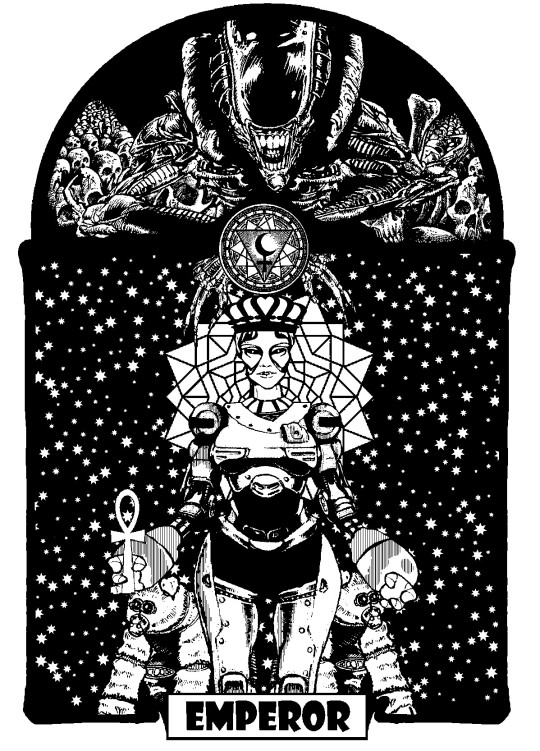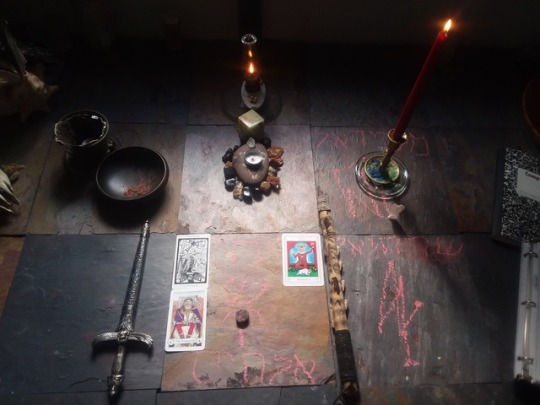#superadd
Text
Classy redhead MILF stepmom plays a dangerous game
Hot Desi aunty saree navel show
Fucking my cousin in the SQ while everyone sleeps
Fun w trans
pregnant lesbian sex with toys in preggy pussy
Facefucked my lil thot
Tight American pussy starring,Cara Moore
Sexy young Caucasian shemale selfsuck and cum
Ricq Flaquita en short
Novinha fazendo seu primeiro anal
#supporting#humourful#headlongness#waratah#reopening#slinkskin#roughtail#spermophyte#superadd#interregency#proseneschal#Dugspur#thriller#Solenopsis#eager-hearted#extra-britannic#espadon#glucolipine#Rafaelle#mat-ridden
0 notes
Text

Christopher Gable and Twiggy in The Boy Friend (Ken Russell, 1971)
Cast: Twiggy, Christopher Gable, Max Adrian, Bryan Pringle, Murray Melvin, Moyra Fraser, Georgina Hale, Sally Bryant, Vladek Sheybal, Tommy Tune, Brian Murphy, Graham Armitage, Antonia Ellis, Caryl Little, Glenda Jackson. Screenplay: Ken Russell, based on a musical play by Sandy Wilson. Cinematography: David Watkin. Production design: Tony Walton. Costume design: Shirley Russell. Music: Peter Maxwell Davies; songs: Sandy Wilson, Nacio Herb Brown, Arthur Freed.
Nothing succeeds like excess. That seems to have been Ken Russell's motto, well displayed in The Boy Friend. As I watched it, I thought the first parody of Busby Berkeley's kaleidoscopic production numbers for Warner Bros. musicals was brilliant. The second was entertaining. The third was ... well, maybe the law of diminishing returns had set in. The original stage musical was a campy sendup of the kind of musical comedies that P.G. Wodehouse, Guy Bolton, and Jerome Kern used to create for the Princess Theatre and later in the 1920s: tuneful light romances with silly plots. But for the movie, Russell superadds a campy sendup of the backstage movie musicals of the 1930s, borrowing plot and even dialogue from 42nd Street (Lloyd Bacon, 1933), hence the Berkeley parodies. I first saw The Boy Friend around the time of its first release, and enjoyed it. But watching it again now, I found myself looking at the clock after the first hour and a half passed. The version I had seen in the theater was the one MGM had cut by 25 minutes; the restored version runs an exhausting two hours and 17 minutes. That said, there is much to enjoy about Russell's movie, especially the vividly colored production design by Tony Walton and costumes by Shirley Russell (the director's wife). The presence of the great Tommy Tune in the cast is also a plus. The Sandy Wilson songs are pleasantly hummable, and the interpolation of two songs by Nacio Herb Brown and Arthur Freed that were featured in Singin' in the Rain (Stanley Donen and Gene Kelly, 1952) is nice. But a little camp goes a long way, and piling camp on camp can be tiresome, especially if the camp is done the way Russell does it: with a smirk rather than a wink.
12 notes
·
View notes
Text
Power Corrupts and Absolute Power Corrupts Absolutely
I cannot accept your canon that we are to judge Pope and King unlike other men, with a favourable presumption that they did no wrong. If there is any presumption it is the other way against holders of power, increasing as the power increases. Historic responsibility has to make up for the want of legal responsibility. Power tends to corrupt and absolute power corrupts absolutely. Great men are almost always bad men, even when they exercise influence and not authority: still more when you superadd the tendency or the certainty of corruption by authority. There is no worse heresy than that the office sanctifies the holder of it. That is the point at which the negation of Catholicism and the negation of Liberalism meet and keep high festival, and the end learns to justify the means. You would hang a man of no position, like Ravaillac; but if what one hears is true, then Elizabeth asked the gaoler to murder Mary, and William III ordered his Scots minister to extirpate a clan. Here are the greater names coupled with the greater crimes. You would spare these criminals, for some mysterious reason. I would hang them, higher than Haman, for reasons of quite obvious justice; still more, still higher, for the sake of historical science.
- John Emerich Edward Dalberg, Lord Acton: Presidents, Kings, Tyrants, & Despots (1887)
#i know this isn’t my normal content but i felt the need to post the origin of this famous quote. especially given the state of the world rn#historical figures#historical quotes#free palestine#free gaza#israel is committing genocide#free congo#housing crisis#just… everything tbh#historic#socialist#philosophy#quotes#fuck the church#fuck the government#fuck capitalism#eat the rich
2 notes
·
View notes
Text

Power tends to corrupt, and absolute power corrupts absolutely. Great men are almost always bad men, even when they exercise influence and not authority, still more when you superadd the tendency or the certainty of corruption by authority. There is no worse heresy than that the office sanctifies the holder of it.
— The Lord Acton
0 notes
Quote
Power tends to corrupt and absolute power corrupts absolutely. Great men are almost always bad men, even when they exercise influence and not authority: still more when you superadd the tendency or the certainty of corruption by authority.
Lord Acton (John Emerich Edward Dalberg) “Letter to Archbishop Mandell Creighton” (Apr. 5, 1887)
#lord acton#quote#absolute power#power#corrupt#corruption#great#bad#influence#authority#superadd#tendency#certainty#men#Mandell Creighton#John Emerich Edward Dalberg
1 note
·
View note
Photo

The Heart of Your Tale
Nearly all stories in science fiction and fantasy deal with new systems of power—whether it be Frodo’s magic ring or Asimov’s robotics, ultimately you’re creating a new system for acquiring and maintaining power, and when you do this, as Orson Scott Card put it, you are forced at some level to consider the question, “What is the right use of power?” The understanding of power is vital to making better magic systems for your world.
Very often, the answer to this question becomes the very heart of your story. Certainly, it did for Frodo with his ring of power, for Luke Skywalker as he struggled to master the Force, or for Ender Wiggins as he fought to outwit his aliens.
Indeed, if your story is going to have an epiphany—a powerful moment of realization where the audience actually learns something of value—you as a writer have to contend with the issue of the proper use of power.
It’s for this reason that Algis Budrys, the longtime science fiction critic for the Chicago Sun Times and The Magazine of Fantasy and Science Fiction pointed out that “Science fiction and fantasy are the last bastion of moral fiction in America, the only place where you as a writer can talk about good and evil.” (In the mid-1980s when he said it, there was a backlash in popular fiction where people refused to talk about morality. Given the recent #MeToo movement, corruption in politics, and our persistent mass shootings, I suspect that maybe some folks will begin to realize that, “Hey, maybe we should have been trying to reach a consensus on what is right and what is wrong.”) We ignore moral questions at the peril of our own society.
Thus the issue of morality tends to become the very heart of your tale.
Now, there are thousands of “power systems” in the real world. If you think about it for a few moments, you’ll recognize them. In our world, money can give you power. You can use your money to do good—to cure cancer and help others—or you can become totally self-serving and build your pool until the day you abruptly expire. But other power systems exist. I’ve known men in politics who tried to gain power and then been destroyed by others in their own political party. I know writers who use their gifts primarily for self-aggrandizement until they become the Harvey Weinsteins of the publishing world. I’ve seen priests who were destroyed by public adulation, along with rock stars and actors and sports figures and so on. Heck, I’ve even seen mothers use their parental authority to become evil moms.
You’ve probably heard Acton’s quote, “Power tends to corrupt and absolute power corrupts absolutely.” He continues, “Great men are almost always bad men, even when they exercise influence and not authority: still more when you superadd the tendency or the certainty of corruption by authority.”
Take that quote to heart. I think that when most of us hear it, we assume that Acton was talking about someone else. Let me assure you, he was talking about you and me. He was talking about the protagonist of your story. Whatever power system you serve and struggle to use, it can and will corrupt you. All of us need to learn how to handle power without being destroyed by it. Part of learning how to use power is understanding how and why and when to give it up.
What does that mean to your story? Whatever wanky magic system you create in your tale, it is a monster that is likely to turn on and destroy your protagonist. If you missed the prior tips on this topic, you can start here!
Happy Writing!
-David Farland
#writing#writers#writingtip#writingtipsandtricks#writingcoach#writingmentor#writinglesson#writingadvice#writinghelp#author#editor#creativewriting#writingmagic#makingmagic#magicalworld#writerblr#writeblr#fanfic#fanfiction#nanowrimo
403 notes
·
View notes
Photo

Woodcut illustration from the “Strasbourg Vergil,” edited by Sebastian Brant: Publii Virgilii Maronis Opera cum quinque vulgatis commentariis expolitissimisque figuris atque imaginibus nuper per Sebastianum Brant superadditis (Strasbourg: Johannis Grieninger, 1502), fol. 278v, executed by an anonymous engraver under the direction of Brant.
Sebastian Brant | Dickinson College Commentaries
https://digi.ub.uni-heidelberg.de/diglit/vergil1502/0569
26 notes
·
View notes
Photo




Question: Which emperor works best?
“Power tends to corrupt, and absolute power corrupts absolutely. Great men are almost always bad men, even when they exercise influence and not authority, still more when you superadd the tendency or the certainty of corruption by authority,” Lord John Dalberg-Acton (1887)
It occurred to me recently that I had never designed an emperor card before. Since I had always seen it as a grumpy ol’ patriarch I would substitute Consort and the Empress for Empress and Emperor as shown in the more traditional decks. Except that’s purposely missing what the card is about. Authority and structure aren’t gendered. I found that I needed to think outside the very box that I kept claiming I was thinking outside of.
In the Rider-Waite deck an old beardy weirdy in full battle armor sits on a ram-headed throne, holding an Egyptian ankh in one hand (symbol of life), and a miniature world (his domain) in the other. Behind him is a mountain range (the foundation of his power) and on his head rests a crown (the key to his authority).
The framework I use for these particular cards is divided, the upper representing a more cerebral interpretation and the bottom a more literal one. While not traditionally masculine in appearance this emperor still holds her ankh, while at her feet crouch two daggits (from the original 1970s Battlestar Galactica TV show). Instead of mountains the entire universe stretches out behind her, for our dreams of control are limitless. A crown with a large heart rests on her head, symbolizing other ways to govern without resorting to violence and oppression. However, I cannot ignore the fact that I have rarely ever encountered an emperor (even the most mundane) who wasn't intoxicated with power. That's where the xenomorph comes in, surrounded by a mountain of bones, reaching down to remind us that corruption of authority resides in all of us.
I'm an amateur when it comes to my tarot art. I have ideas but find it difficult following through on them. I struggle to come up with a unified style that would make all these card feel as if they came from the same deck. Of the four images the last one feels the most unsatisfying; I was trying for a neon black velvet level of colors but the whole thing comes off as murky. It's hard to be objective when you simultaneously feel that they all could work while feeling that they all need more work as well.
What are your thoughts?
48 notes
·
View notes
Note
Is there any way for governments to avoid power corrupting its politicians? If so, how? If not, what part of human nature makes corruption unavoidable?
As Lord John Dalberg-Acton said, “Power tends to corrupt and absolute power corrupts absolutely. Great men are almost always bad men, even when they exercise influence and not authority; still more when you superadd the tendency of the certainty of corruption by authority.” I hold an extremely similar view, power is addictive - the second someone is allowed even an ounce of fit they will push and push until they can not. Humans are selfish beings at their core, to pretend otherwise is reckless.

1 note
·
View note
Text

To understand what the law of man truly is about one must learn of what it is not. This is as is called Trial By fire. This trial through a trial of will, strength and by mind is one that will take the soul to it's breaking point to undo what once was the law of man and revert it to the law of being human. To the glory or to pride one must behold where to find oneself once within this trial.
For what is law? Tradition? Constitution? Or simply being of human. To be human is to grow back into the ecosystem and microcosim not in the Mycrocosim of mans self apointed rulership of the world. This vision si what has placed man to where we are today. In a world of ego, not of eco. We have stepped out of the system that we once cradeled us and gave us the breath of life. Now we subjugate our own basket of youth and think this is how we are supposed to be, but not knowing we created this destructive egosystem to control the fragil ecosystem of our upbrining.
The laws of man are not the laws of nature, the laws of humans. It is a set of actions of control with an iron rod of serverity to all that will go against the wishes of what man deems as right.
"Power tends to corrupt, and absolute power corrupts absolutely. Great men are almost always bad men, even when they exercise influence and not authority, still more when you superadd the tendency or the certainty of corruption by authority."- John Dalberg
#tree of life#hermetic qabalah#occult#spirituality#kabbalah#cabala#esoteric#qabalah#spiritual#lessons#ceremonial magick#mysticism#hermeticism#hermetic#magick#ritual#occultism#metaphysical#occult teachings#spiritual alchemy#alchemy#path of heh#path 15
17 notes
·
View notes
Quote
Power tends to corrupt and absolute power corrupts absolutely. Great men are almost always bad men, even when they exercise influence and not authority; still more when you superadd the tendency of the certainty of corruption by authority.
John Dalberg-Acton, 1st Baron Acton
3 notes
·
View notes
Photo

Gary Cooper and Grace Kelly in High Noon (Fred Zinnemann, 1952)
Cast: Gary Cooper, Grace Kelly, Lloyd Bridges, Katy Jurado, Thomas Mitchell, Otto Kruger, Lon Chaney Jr., Harry Morgan, Ian MacDonald, Lee Van Cleef, Eve McVeagh, Morgan Farley, Robert J. Wilkie, Sheb Wooley. Screenplay: Carl Foreman, based on a story by John W. Cunningham. Cinematography: Floyd Crosby. Production design: Rudolph Sternad. Film editing: Elmo Williams, Harry Gerstad. Music: Dimitri Tiomkin.
High Noon, as has often been noted, is a movie of almost classical simplicity, adhering to the unities of place (the town of Hadleyville) and time (virtually, with perhaps only a little fudging, the runtime of the film). There are no flashbacks -- the only expository moment involves a shot of an empty chair -- and no preliminaries or codas: It begins with the wedding of Will Kane and Amy Fowler, and ends with a shot of them riding out of town. It's what makes the movie enduringly satisfying, but also what once seemed to make people want to superadd a layer of significance by interpreting it as a parable about blacklisting. That would have been inevitable anyway, since screenwriter Carl Foreman had been called before the House Un-American Activities Committee and left the country before the film was released. But it strains the tight confines of the film's narrative. Not surprisingly, High Noon took some hits from critics on the right like John Wayne, but it was also stigmatized for a long time as "pretentious." Andrew Sarris called it an "anti-populist anti-Western," but that, too, seems to me to burden the film with too much message. (Anyway, aren't Westerns, with their emphasis on wandering loners, essentially "anti-populist"?) Sixty-five years later, it's possible to view High Noon as nothing more than a neat and tidy narrative about simple heroism, which is not at all "anti-Western," a phrase that suggests far more psychological complexity than the movie possesses. Will Kane is still the good guy and Frank Miller and his gang are black-hearted baddies. If you want moral complexity, go watch The Searchers (John Ford, 1956) or The Wild Bunch (Sam Peckinpah, 1969). It's true that High Noon was overpraised at the time, winning four Oscars -- for Cooper, film editors Elmo Williams and Harry Gerstad, composer Dimitri Tiomkin for the score and, with lyricist Ned Washington, the song "High Noon (Do Not Forsake Me, Oh My Darlin')" -- and nominations for best picture, director, and screenplay. But that the Academy should even have acknowledged the virtues of a Western, a genre it typically looked down upon, is significant -- even though it reverted to its usual indifference to the genre a few years later, when it entirely ignored The Searchers.
3 notes
·
View notes
Photo

NEON PLAY ROOM
PARTY from SUPER ADD X Urban Nomad. 2014
http://superaddddddd.com/EVENT-SUPER-ADD-X-Urban-Nomad-Neon-PLAY-ROOM-feat-Mad-Decent
0 notes
Text
Power, Temptation, Corruption
“Power tends to corrupt and absolute power corrupts absolutely. Great men are almost always bad men, even when they exercise influence and not authority: still more when you superadd the tendency or the certainty of corruption by authority. There is no worse heresy than that the office sanctifies the holder of it. That is the point at which . . . the end learns to justify the means.”
I think it's safe to say that these immortal words from Baron John Acton’s famous 4/5/1887 letter to Archbishop Mandell Creighton perfectly summarize Fjord's current situation going into the end of the year.
Fjord may not have started out as a bad man, but he's definitely showing signs of slipping. I mean, look at how much he's changed compared to Beauregard. It's as if they've completely had their roles reversed. Now she's the one concerned for others, willing to slowly come out of her shell and start showing how she really feels and wanting to connect with everyone... and he's become much more condescending and snappish, as noted when he continued to disregard Nott's fear of water AND when he simply called her "Goblin". And the not-so-subtle manipulations he's been using to "convince" her to help out. I know they've had a rocky, borderline antagonistic relationship since the early episodes but... wow. Also, the blatant disregard he's had now for many of the party's concerns.
The fact that the Nein were for the most part encouraging him to do what he had to do while they were under Avantika's "care" doesn't help matters either, I'll admit. But they also couldn't have foreseen that things would turn out like this, that he would change so much during this arc.
And while it excites me to see where this may go, it also worries me. How far is too far for Fjord, if there even is such a limit at this point? And how much will the others take before deciding that enough is enough and try to drag him back? And despite his claims that he will stop pursuing this once they insert the second crystal, I find it very hard to believe that he will.
That being said, if Travis is intentionally RPing Fjord this way, and not just playing off of 7 Wisdom, then it's a pretty awesome power move.
What are your thoughts?
#critical role#fjord#beauregard#caleb widogast#nott the brave#jester lavorre#yasha#caduceus clay#cr episode spoilers#the mighty nein#campaign 2 episode 46#cr meta
10 notes
·
View notes
Quote
Power tends to corrupt and absolute power corrupts absolutely. Great men are almost always bad men, even when they exercise influence and not authority: still more when you superadd the tendency or the certainty of corruption by authority.
Lord Acton
#lord acton#bishop creighton#1887#power#power corrupts#absolute power corrupts absolutely#great men#bad men#corruption by authority#authority#job titles#politics#corrupt politicians#corrupt trump#corrupt republicans#corrupt democrats#political corruption#potus#potus45#tre45on#quotes
3 notes
·
View notes
